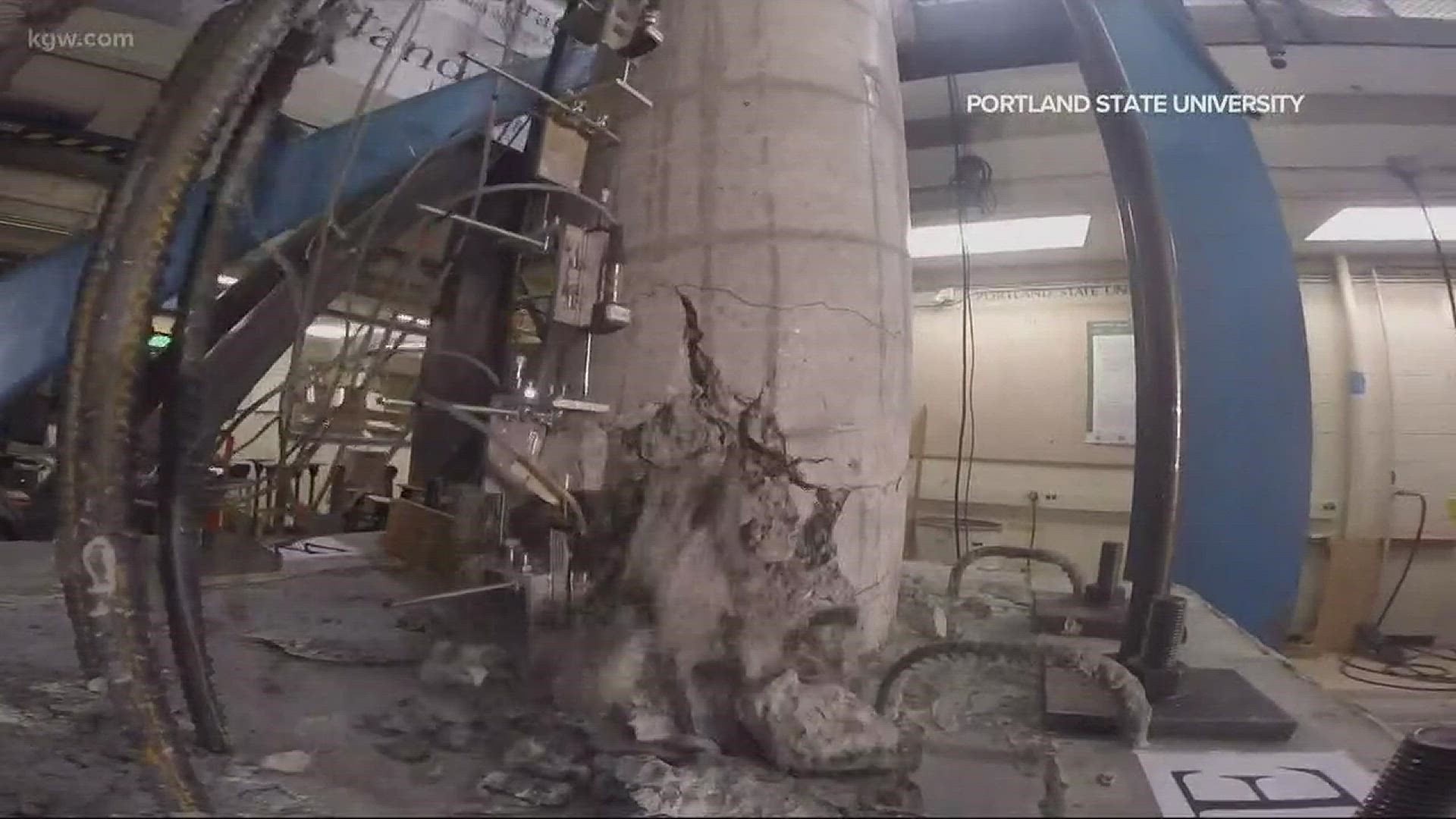Oregon is unprepared for a major disaster such as a volcanic eruption, terrorist attack or Cascadia earthquake and tsunami, the state Audits Division said in a report released Thursday.
Oregon’s Office of Emergency Management, charged with coordinating the state’s preparedness and response efforts, is understaffed and lacks the capacity to fully do its job, auditors found.
The state hazard mitigation team consists of one person. That compares with six in Washington, five in Alaska and 41 in Florida.
Oregon does not meet key national standards, established in 2007, that cover basic elements of an effective emergency management program.
Continuity plans that would ensure functional government services following a disaster are either missing or incomplete.
“Without these plans in place, Oregon’s government is at serious risk of failing to continue with or reestablish its key operations following a catastrophic event,” auditors wrote.
State emergency response facilities, including the Emergency Coordination Center, are in seismically vulnerable buildings. A survey of counties found nearly half also have emergency operations centers located in hazard zones.
And Oregon has not corrected deficiencies identified in the Cascadia Rising multi-state exercise in June 2016. The state developed a corrective action plan in December but it’s still in draft form. Washington, meanwhile, finished its plan within six months.
“Our audit found Oregon lacks key elements of an effective emergency management program,” the auditors wrote.
Oregon faces risks from a variety of disasters, including wildfires, flooding, landslides, severe weather, hazardous material spills or terrorism.
It’s also at risk of a catastrophic Cascadia subduction zone earthquake off the coast that would wipe out infrastructure and result in numerous deaths.
The Office of Emergency Management, a division of the Oregon Military Department, coordinates preparedness and response. But other state agencies, counties, cities, and some nonprofit agencies play roles as well. The state emergency management system is ultimately Gov. Kate Brown’s responsibility, auditors said.
The audit includes 11 recommendations, five for the emergency management office and six for the governor’s office.
They include completing and implementing emergency and continuity plans, meeting minimum emergency management program standards, reporting on efforts to improve state resilience, defining roles and responsibilities and filling resource gaps.
In a written response to the audit, Brown agreed with auditors’ findings and recommendations, except for one recommendation she said has been completed.
The Oregon Military Department also agreed with the recommendations.
“At the state level, OEM has done remarkable work on behalf of Oregonians,” Maj. Gen. Michael E. Stencel, Oregon’s top military commander, wrote in a response to the audit.
“The last three years have seen OEM manage three presidential disaster declarations, coordinate state planning actions to the 2017 eclipse, support Oregon National Guard wildland fire deployments to save lives and property during catastrophic wildfires and broker agreements with neighboring states to bring critical resources into Oregon and to send some of our state firefighting resources to California to do the same there during that state’s unprecedented wildfire season,” he wrote.
tloew@statesmanjournal.com, 503-399-6779 or follow at Twitter.com/Tracy_Loew

